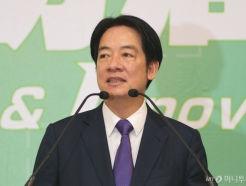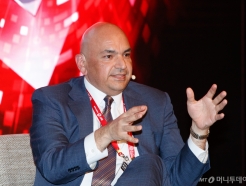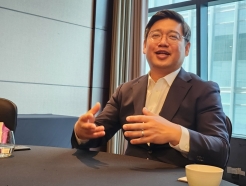 이미지 크게보기 이미지 크게보기 |
| 론 윌리암스 스냅굿스 창업자 겸 대표이사 |
좀처럼 보기드문 이력의 소유자는 바로 미국 내 온라인 나눔장터를 운영하는 사회적기업 스냅굿스의 창업자 론 윌리엄스 대표이사(사진)다. 하버드대에서 경제학과 동아시아학을 전공한 래퍼 겸 복서가 월가를 2년 만에 뛰쳐나와 창업하기까지 이야기를 머니투데이가 e메일 인터뷰를 통해 들어봤다.
윌리엄스 대표는 머니투데이가 창사 14주년을 맞아 오는 18∼19일 서울 여의도 콘래드호텔에서 개최하는 신개념 글로벌 콘퍼런스 '2013 키플랫폼'(K.E.Y. PLATFORM 2013)의 첫째날(18일) '창의적 자본주의' 분과 세션에서 '공유경제 비즈니스모델의 성공사례'를 주제로 강연할 예정이다.
윌리엄스 대표가 메릴린치를 떠났을 때 나이는 23세. 월급 외 보너스로만 4만달러(4400만원)씩 받던 그가 월가를 뛰쳐나온 이유는 다름아닌 '지루해서'였다. "난 소셜데이터광이고 사람들을 서로 이어주는 일에 무한한 흥미를 느끼며 집착한다. 돈을 벌 수 있는 다른 방법은 얼마든지 있다고 생각했다."
이후 윌리엄스 대표는 자신이 진정으로 사랑하는 일을 하기로 했다. 개인교습 서비스를 제공하는 교육사업을 시작했고 출판사를 통해 기업교육사업을 하기도 했다.
결국 윌리엄스 대표가 정착한 곳은 '공유경제'였다. 그에게 '기업가정신'(Entrepreneurship)이란 숭고한 게 아니라 그저 '불만'을 해결하는 것이었다. "이미 쓸모가 없게 된 물건을 처분하고 싶은 사람과 돈을 주고라도 그 물건을 빌리고 싶은 사람이 서로 만날 수 있는 곳이 왜 없을까."
이것이 그의 불만이었다. 윌리엄스 대표는 "무엇인가 마음에 들지 않고 그 문제에 집착한다면 당신은 제대로 가고 있는 것"이라고 말했다.
스냅굿스는 사회적기업이면서도 수익 면에서 가장 성공한 회사 가운데 하나다. 그 비결에 대해 윌리엄스 대표는 "'공유경제'라는 개념의 함정에 빠지지 않고 고객들에게 '실질적인 가치'를 전하는 데 집중했기 때문"이라고 설명했다. 마케팅 전략의 경우 윌리엄스 대표는 광범위하고 특징없는 집단 대신 작고 잘 정의된 소집단을 목표로 정해 스냅굿스로 끌어들였다.
스냅굿스는 지금까지의 성공에 머물지 않고 새로운 사업을 계속 개발 중이다. 전자제품이나 최고급 아웃도어 의류처럼 구매하기까지 오랜 고민을 필요로 하는 제품에 한해 '구매 전 체험' 서비스를 제공하는 새로운 사업을 테스트하고 있다.
윌리엄스 대표의 꿈도 여기서 그치지 않는다. 그는 파트너십과 라이선스 협약 등을 통해 스냅굿스를 세계적 기업으로 성장시킬 계획이다.
윌리엄스 대표는 '인생 최고 선택'으로 "창업하면서 실리콘밸리로 떠나지 않고 뉴욕에 남은 것"을 꼽았다. 그는 "변화무쌍한 뉴욕에서 훌륭한 멘토와 지원자를 만났을 뿐 아니라 내가 진정으로 사랑하는 도시의 선도자가 되고자 하는 '동기부여'가 됐다"고 했다. 현재 뉴욕은 실리콘밸리에 이어 제2의 창업허브로 부상하고 있다.
윌리엄스 대표는 마지막으로 창업을 꿈꾸는 한국의 젊은이들에게 낭만적이면서도 현실적인 조언을 남겼다. "당신이 무엇인가 해결하고 싶다는 불타는 욕구가 생길 때 시작하라. 당신이 그 문제에 대해 충분히 열정적이지 않다면 차라리 시작하지 않는 게 좋다."
◆ 영문 인터뷰 전문
- Would you introduce yourself shortly for Korean readers and our session delegates? What do you expect from participating in this session?
▶I am the CEO and co-founder of SnapGoods and Knodes. I am a social data nerd. I obsess about making human networks actually work and I love connecting people. I was born and raised in Brooklyn, NY and graduated Harvard University with a degree in Economics and East Asian Studies. I am looking forward to learning what kinds of thinking are happening on the ground in Korea around peer to peer (p2p) economies. I'm also eager to share what we've learned over the past 3 years building one of the leading peer-to-peer platforms in the US.
- Could you tell us your career history briefly? What was the turning point and what has inspired you most in your career choice?
▶I've worked on wall street as an investment banker. I've started and run a successful education business, I've invested in Education Technology businesses as a Corporate Development executive. The most formative decision I made was choosing not to move to San Francisco to build a company. Staying in the rapidly evolving NYC environment has provided both amazing mentors and an opportunity to become a leader in the city I love.
- How do you define sharing economy? What do you think makes it different from other types of economy?
▶Whether you call it the "sharing economy," the "access economy" or "collaborative consumption" I define it simply as any system in which 1) access to a good or service is not defined solely by sales and purchasing AND/OR 2) suppliers of goods and services in the system do not have to be traditional commercial entities.
- Being a start-up CEO , It is very difficult to succeed financially. How do you keep Snapgoods social and profitable? What are your key success factors in leading Snapgoods?
▶We focus on delivering real value to our customers (as opposed to focusing on the novelty of the sharing economy). The profitability and sustainability of our business will always depend on that. My job is to make sure that my team recognizes what we can be the best at so we can make big investments in those areas. We also have been leaders in thinking critically about the long term integration of the sharing economy into the traditional economy at scale.
- What do you think is the most strong point of Snapgoods compared with others? What is the vision of Snapgoods?
▶SnapGoods has always considered safety, user trust, and social data as central to the platform. We even built our own social data analyzing technology to give ourselves an advantage in showing our users who in their personal network would be able to help them find goods. Our vision is to grow snapgoods internationally through partnerships and exclusive licensing agreements. We also plan to work with the organization that are thinking creatively as we've tested and proven a business model for paid product trials (i.e. try before you buy) for certain categories of product (electronics, high end outdoor and athletic gear).
- What do you think is the biggest risk to the world economy in this era? And what are you strategies to deal with it?
▶I think the biggest risk is any faltering in cross border communication. To combat this I'll continue to build communities, technology and companies that foster increased and more productive communication. Collaboration is the key.
- What do you think is a core problem of your society and how do you think Snapgoods contribute in solving the problem?
▶Core problem in the US is education. I'm not sure that SnapGoods directly contributes to solving this problem but we do model reliance on community and companies like SkillShare demonstrate that everyone can be a teacher.
- Do you still box or rap? What do you do in your free time?
▶I do box from time to time. Sadly my brain is not as lyrically limber as it once was and I no longer rap. In my free time I enjoy taking my wife out, cycling in the summer and snowboarding in the winter.
- What is your alternative goal in your life? What is the most important value for you except for 'A Brief History of Time'?
▶The most important things to me in life are family and having a space to create things that I believe the world needs.
- Do you have any idea of Korean economy? Could you give any advice for those who dream of being a start-up founder in Korea?
▶I'm very impressed by the entrepreneurship already coming out of Korea and would encourage anyone with ideas to build around the things that they know and love. My only advice is that starting something should come from a burning desire to fix something you believe is broken. If you're not passionate about the problem you're solving, you're setting yourself up for trouble.








